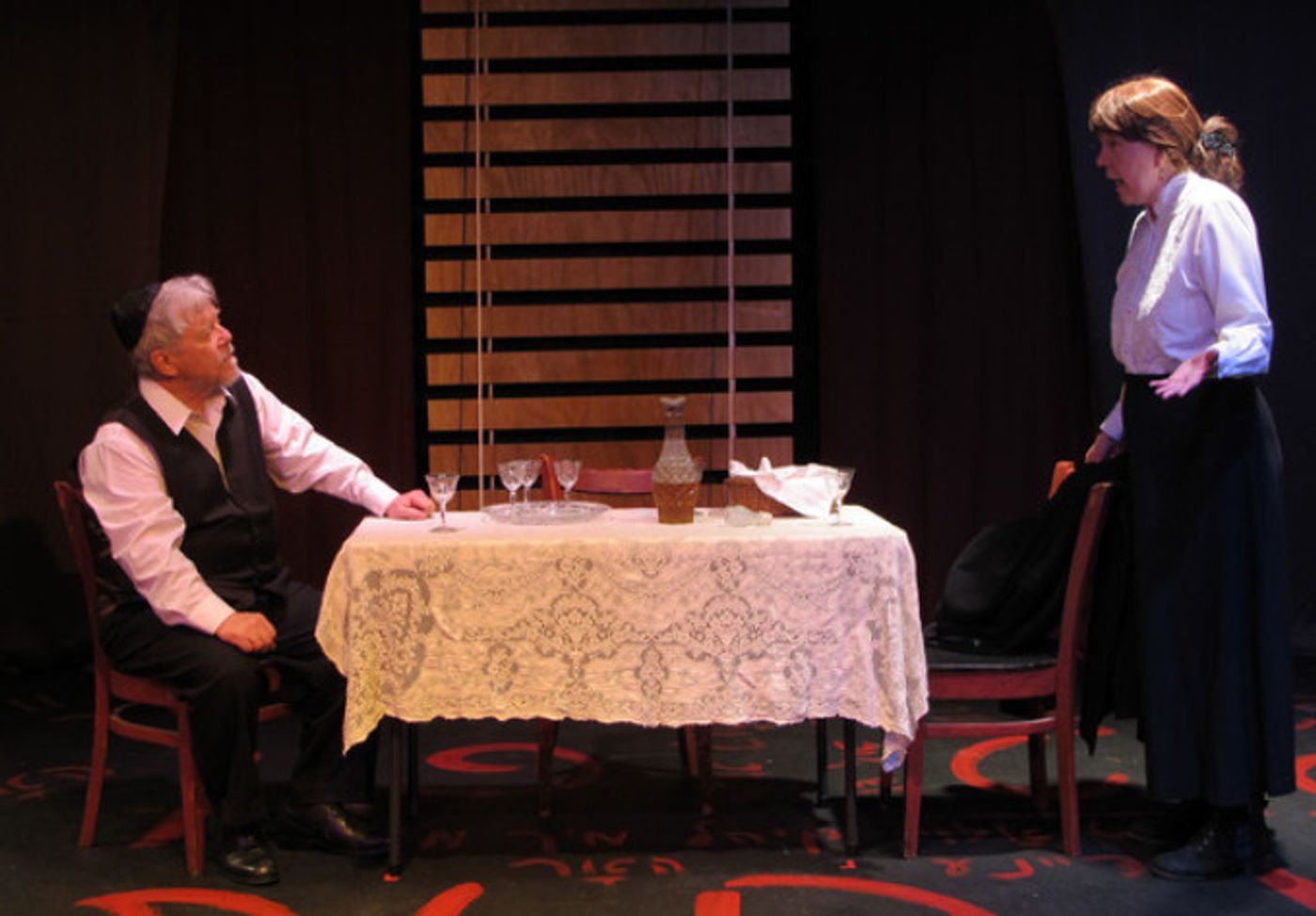Review: Riveting GOD OF VENGEANCE at Head Trick Theatre

While GOD OF VENGEANCE may currently be better known as the subject of the 2017 Tony Award nominated Paula Vogel play, Indecent, as anyone who attended Head Trick Theatre's production of the show at AS220's Black Box Theatre could attest, it is a fascinating piece of theatre in its own right.
Smartly directed by Rebecca Maxfield, God of Vengeance gives us a glimpse into the lives of Yekel, a brothel owner, and his wife Sarah, a former prostitute, and while she has no difficulty letting go of the past, Yekel cannot. Feeling mired in his sin, he hinges every hope on his daughter Rifkele, who is of marrying age, and who he considers untouched by sin, even having a Holy Scroll written for her, to be kept in her room.
Rifkele's dreams, however, do not include being married off to a nice Jewish boy. Every night, she goes down into the basement brothel and visits Manke, one of the family's prostitutes with whom she has a secret romantic relationship. By the final scenes, nothing goes as hoped, for either the parents or the daughter. There can be no happily ever after here.
The kiss between Rifkele and Manke, which ends Act I, was the reason the original 1923 Broadway cast and producers were charged with obscenity. The show was successful in a number of European countries prior to this reception in New York, having originally been produced in 1910 Berlin, and was popular in Yiddish theatre.
The cast was largely strong, even finding moments of levity in a show that is intense emotionally and thematically. There were a number of stand-outs, including Eric Behr, who gave a powerful performance as Yekel, Christine Pavao, who portrayed just the right mix of playfulness and sincerity as Manke (I only wish the character had more of a presence in the script), and Geoff White as Reb Eli, who captures the character's desire to help his fellow man, even if he is sometimes bewildered by Yekel's reactions.
While black box theatres do not lend themselves to complicated scenery, curtains, chairs, and simple set pieces were artfully used to imply the different rooms, and the upstairs/downstairs aspect to the house. One particular clever bit of direction was having the prostitutes raise the set pieces which portrayed the walls of the house - as Yekel and Sarah's house was indeed built by their particular business.
Due to the confined space of the black box theatre, there is no need for microphones, however it was occasionally difficult to hear actors who were meant to be whispering. And although no particular year was given in the program, some characters appeared dressed from the early 1900's while others donned more typical 1920's wear and hairstyles (or, in Shloyme's case, an outfit that would not be out of place even now).
As noted in the program, by 1946, Sholem Asch, God of Vengeance's playwright, banned further production of the play, claiming "the situation described in the play is dated and exists no longer." Sadly, our current social and political climate illustrates that even in 2018 this statement is not - and never has been - true. To address some of the many issues raised by the play, a series of talkbacks were scheduled after each performance. Guests included David Mazower of the Yiddish Book Center (and great-grandson of the playwright), Hilary Levey Friedman from the National Organization of Women, and other individuals from Jewish, feminist, and LGBT organizations.
God of Vengeance is the final show of Head Trick Theatre's current season, but be sure to follow them on Facebook (http://www.facebook.com/HeadTrickTheatre) or visit their website at headtricktheatre.org and be amongst the first to find out what the next season has in store.
Photo Credit: Liz Oakley
Reader Reviews
Videos
